Mich Turner MBE, food scientist, television judge and owner of Little Venice Cake Company, on why sugar isn’t necessarily the bad guy… it’s just a question of being a little unrefined
Mich Turner was 17 when she decorated her first cake and has now made and decorated more than 10,000 bespoke bakes, “and that’s just with Little Venice Cake Company”.
Founded by Turner in 1999, Little Venice Cake Company (LVCC) is self-proclaimed as “London’s leading designer of couture wedding, birthday and celebration cakes”. The business is internationally renowned, as is Turner herself.
Having studied food science and food nutrition at university, she was sponsored by United Biscuits (UB) and was employed by UB-owned McVitie’s for a year. She went on to work in biscuit and Christmas cake production for Marks & Spencer, with whom she has also worked as a consultant, before becoming a buyer for Harvey Nichols in bakery and patisserie. In addition to leading LVCC, Turner is now an ambassador for the Scottish Bakers Association.
Her career has been built around innovative sweet treats, and Turner’s latest creation is a cook book focused on a healthier approach to baking.
Published last month, Have Your Cake and Eat It arrives on-shelf as the ‘war on sugar’ continues to rage and healthy eating remains a core consumer concern. But was the timing of the launch intentional or a happy coincidence?
Encouragement and inspiration
“I’d like to think we were ahead of the curve,” she says. “The idea is to give people the encouragement and inspiration to bake daily whilst adding nutrition.”
Turner says her approach is different to books that have promoted “really clean cakes” with no sugar at all, adding that such recipes may require the use of ingredients that “are actually quite scary, quite daunting, and that you have to trawl to the back ends of Outer Mongolia to find”. Such ingredients can also be expensive, she adds.
“What I want to do is give people recipes that give them a helping hand to lead them into healthier everyday baking, but using store cupboard ingredients – things that can be found very easily and on a budget.”
So does this mean no sugar?
“Absolutely not,” says Turner. “There’s no ingredient that’s technically bad for you, it’s just the amount you have and how it fits in with the rest of your diet.
“You can’t make cakes without sugar. But what you can do is be clever with the other ingredients you’re working with, so for the amount of cake you’re eating, you’re having less sugar.
“The only food source the brain can use is glucose, which is the simplest sugar. The brain needs sugar, it needs glucose – that’s how it works.”
Smaller quantities
Turner says using unrefined sugars such as golden icing sugars, or caramelised, rich muscovado sugars will add flavour and can be used in smaller quantities. She adds that if a recipe uses other ingredients that add more flavour, then not as much sugar is needed to round that flavour off.
The book, and her ethos, is about “making something that’s going to pack a punch and deliver in terms of flavour and taste but also nutrition”.
Using dried fruit means you can cut back on the sugar you need to put in, without compromising on sweetness, she suggests.
“It will taste as sweet, but you’ll be getting more of the flavour of the other ingredients, rather than it just being a sweet hit that doesn’t actually deliver on any other organoleptic (sensory) level.”
Sugar is needed, but bakers will be missing a trick if they don’t heed the healthy eating phenomenon, she advises.
Turner also has advice for anyone considering opening their own bakery business: start by baking as a hobby. “First and foremost, do it for the love of doing it – for yourself, for friends and family – because it’s a tough market to get into as a career. It is very difficult to be a stand-out baker – you need to have a unique selling point, something really special – it’s a congested market here in the UK.”
Tough it may be, but Turner ploughed her own furrow long before the days of The Great British Bake Off – for which she tipped Prue Leith to replace Mary Berry, a prediction that has just become a reality.
If anything, Turner cleared the way for Bake Off as a judge on its predecessor, Britain’s Best Bakery.
“We visited over 100 or so bakeries around the country, and every baker, every bakery has something new to offer. There is so much development and new product innovation that could and should go on, regardless of scale.”
She adds that, even at the largest end of the spectrum, baking remains a highly skilled profession.
“You have to turn out a huge amount of quality product in a very short space of time. This is a real contrast to the way I work, where such time is taken and it’s all about delivering that precision and quality in each cake. There’s so much room for both though.”
Change for the better
The publication of her new book is one example of how bakery is changing, she says, but she feels such changes are for the better. “Since I started consulting for M&S more than 10 years ago, even with all their skill, their manpower, things that drew a sharp intake of breath when I suggested them 10 years ago, they are now doing as a matter of course. I think they’ve had to do that in order to keep clear water between themselves and their competitors.
“Bakers need to follow that example,” she says, “and in many cases, they already are. Whether you’re a small craft baker or a large-scale operation, the message is the same. Move with the times or be left in their wake. But the baking industry is so good at doing that – at staying with, or even leading the seas of change.”
Have Your Cake and Eat It
Mich Turner’s new book features recipes for cakes, cookies and desserts that offer substitutions for refined sugar through the use of superfoods.
Published: March 2017
Publisher: Jacqui Small LLP
Recipe: Hummingbird cupcakes
Inspired by the hummingbird cake – a banana/pineapple spice cake, created in Jamaica
Ingredients (Makes 20)
Plain flour, 360g
Golden caster sugar, 400g
Bicarbonate of soda,
1 teaspoon
Ground cinnamon,
1 tablespoon
Sunflower oil, 260g
Eggs, 3 large, beaten
Vanilla bean paste,
1 tablespoon
Bananas, very ripe,
4 medium or 2 large
Pineapple, fresh or canned, crushed or finely chopped, 225g
Pecans or walnuts, chopped, 100g
Edible flowers, to decorate
For the dairy-free coconut frosting
Coconut oil, 230g
Icing sugar, 500g
Desiccated coconut, 25g
Lime, grated zest of one
- Preheat the oven to 180°C/gas 4. Line two
- 12-hole muffin tins with 20 cupcake liners (or you can bake in batches).
- In a large bowl, combine the flour, sugar, bicarbonate of soda and cinnamon. In a separate bowl, combine the oil, eggs and vanilla. Stir into the dry ingredients.
- Mash the bananas and add them to the batter, along with the pineapple and pecans. Stir with a wooden spoon until just combined.
- Spoon the batter into the cupcake liners until they are two-thirds full and bake for about 20 minutes until firm to the touch and a knife inserted in the centre comes out clean. Remove from the oven and transfer to a wire rack. Leave to cool in the tin for 5 minutes before turning out and leaving to cool completely.
- To make the frosting, place the coconut oil in a suitable bowl and microwave for 30 seconds or until melted. Beat in the icing sugar in two batches until smooth and the right consistency. Stir in the desiccated coconut and lime zest to taste.
- Top the cupcakes with a swirl of coconut frosting and decorate with edible flowers.
- Store for up to three days in an airtight container at room temperature. Not suitable for freezing.

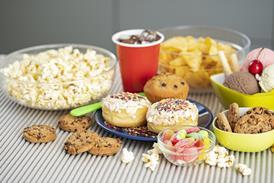
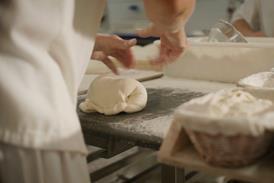
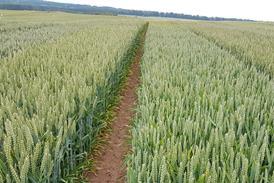
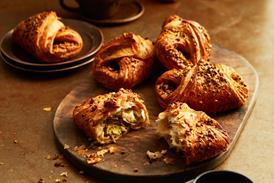
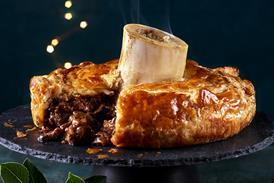
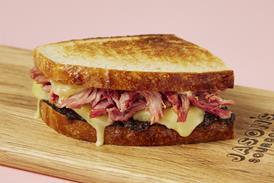

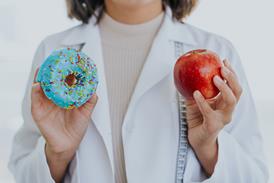
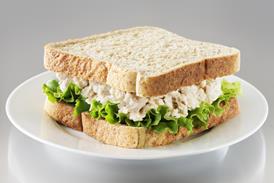
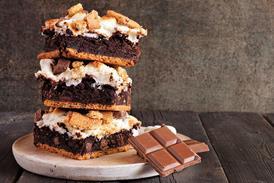
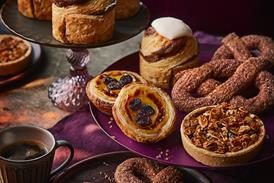
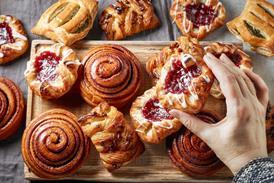
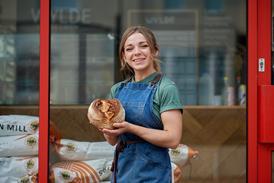
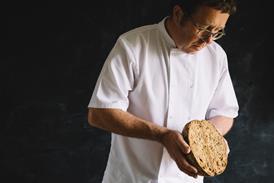
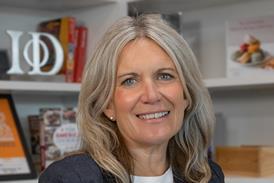

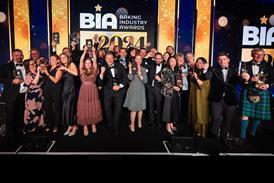
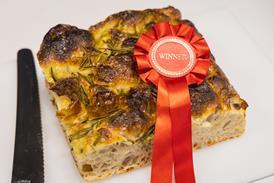
No comments yet